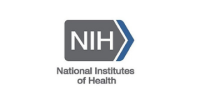
National Institutes of Health (NIH)
NEWS
The U.S. National Institutes of Health announced that a Phase II clinical trial of AstraZeneca and Merck’s selumetinib in neurofibromatosis type 1 shrank inoperable tumors.
The focus of the research will be to learn more about ApoE4 and how and why it affects Alzheimer’s disease.
Instead of injecting the vaccine into the muscle or skin, researchers injected BCG directly into the bloodstream. The results were dramatically improved effectiveness.
The organizations hope the funding will result in clinical trials in the U.S. and countries in sub-Saharan Africa in the next seven to 10 years. Francis Collins, director of the NIH, said they would focus on “access, scalability and affordability.”
Professor Lorraine Brennan from University College Dublin is delighted to have been awarded a US-Ireland grant, funded by the Health Research Board (HRB), to the tune of almost €1 million.
A grant from the National Institutes of Health awarded to a Weill Cornell Medicine investigator will bolster Akelos Inc.-supported research to develop a non-opioid alternative to treat chronic and neuropathic pain.
C4X Discovery Holdings plc is pleased to note Indivior PLC’s announcement that the National Institutes of Health has granted Indivior’s application entitled “Clinical Evaluation of C4X3256, a Non-Opioid, Highly-Selective Orexin-1 Receptor Antagonist for the Treatment of Opioid Use Disorder” pursuant to Funding Opportunity Announcement RFA-DA-19-002 dedicated to the development of medications to prevent and treat opioid use disorder and overdose.
The UC Santa Cruz Genomics Institute will play a leading role in the ambitious new Human Pangenome Reference Sequence Project
JOBS
IN THE PRESS







